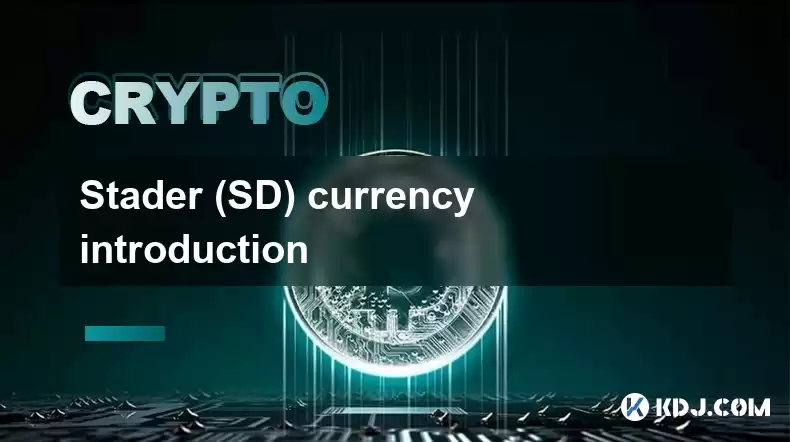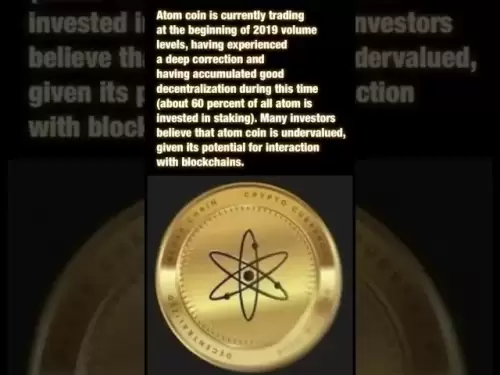-
 Bitcoin
Bitcoin $115400
-2.31% -
 Ethereum
Ethereum $3633
-3.91% -
 XRP
XRP $3.028
-2.04% -
 Tether USDt
Tether USDt $0.9998
0.00% -
 BNB
BNB $769.9
-2.46% -
 Solana
Solana $169.5
-3.95% -
 USDC
USDC $1.000
0.02% -
 Dogecoin
Dogecoin $0.2091
-3.02% -
 TRON
TRON $0.3271
0.23% -
 Cardano
Cardano $0.7350
-3.13% -
 Hyperliquid
Hyperliquid $39.38
-9.70% -
 Stellar
Stellar $0.3968
-2.65% -
 Sui
Sui $3.539
-5.86% -
 Chainlink
Chainlink $16.67
-4.22% -
 Bitcoin Cash
Bitcoin Cash $557.5
-2.85% -
 Hedera
Hedera $0.2523
-4.17% -
 Avalanche
Avalanche $22.24
-2.87% -
 Ethena USDe
Ethena USDe $1.000
-0.02% -
 Toncoin
Toncoin $3.539
0.93% -
 UNUS SED LEO
UNUS SED LEO $8.940
-0.17% -
 Litecoin
Litecoin $106.4
-2.55% -
 Shiba Inu
Shiba Inu $0.00001234
-2.77% -
 Polkadot
Polkadot $3.652
-2.76% -
 Uniswap
Uniswap $9.152
-4.42% -
 Monero
Monero $302.0
-1.10% -
 Dai
Dai $0.0000
-0.01% -
 Bitget Token
Bitget Token $4.344
-3.01% -
 Pepe
Pepe $0.00001065
-3.93% -
 Cronos
Cronos $0.1370
-3.61% -
 Aave
Aave $259.6
-2.74%
Stader (SD) currency introduction
By seamlessly integrating its advanced features with user-friendly accessibility, Stader solidifies its position as a comprehensive platform that empowers users to effortlessly stake their crypto assets and optimize their passive income.
Jan 05, 2025 at 10:14 am

Key Points:
- Stader: Overview and Background
- Staking and Delegation with Stader
- Governance and the STAKE Token
- Stader Vaults: Maximizing Rewards
- Advanced Features and Roadmap
- Stader Protocol Comparative Analysis
- Staking Alternatives to Stader
- Staking Rewards and Inflation
Stader (SD) Currency: Introduction
Stader is a comprehensive platform that empowers users to stake their cryptocurrency assets and participate in network governance. By leveraging its secure and accessible platform, Stader makes staking accessible to all, enabling users to maximize their earning potential and contribute to the security and stability of blockchain networks.
Staking and Delegation with Stader
- Simplified Staking: Stader eliminates the complexities of staking by offering a user-friendly platform that guides users through the entire staking process seamlessly.
- Staking Pools: Stader's staking pools allow users to delegate their assets to experienced validators, ensuring optimal rewards and minimal downtime.
- Auto-Compounding: Stader automatically re-stakes rewards earned, maximizing compounding benefits and boosting overall returns.
- Flexible Delegation: Users can easily switch between validators, allowing for fine-tuning of reward optimization and risk management.
Governance and the STAKE Token
- Stake Token (STAKE): STAKE is the native token of the Stader ecosystem. Holding STAKE entitles users to participate in governance, vote on proposals, and influence platform development.
- Governance Voting: STAKE holders can cast votes on key platform decisions, ensuring the platform evolves in line with community preferences.
- Protocol Revenue Sharing: A portion of the protocol revenue is distributed to STAKE holders, incentivizing community participation and alignment.
Stader Vaults: Maximizing Rewards
- Yield Optimizer: Stader vaults are designed to automatically optimize staking returns by analyzing market conditions and adjusting strategies accordingly.
- Risk Management: Vaults monitor market trends and adjust asset allocation to mitigate risks and protect investor capital.
- Transparent Reporting: Vault performance and earning statistics are transparently reported, providing users with clear insights into their investments.
Advanced Features and Roadmap
- Cross-Chain Staking: Stader is expanding its platform to support cross-chain staking, allowing users to stake assets on multiple blockchain networks from a single interface.
- NFT Staking: Stader is exploring NFT staking capabilities, enabling users to earn rewards for staking non-fungible tokens.
- Liquidity Staking: Stader is developing liquidity staking solutions, allowing users to access liquidity while earning staking rewards.
Stader Protocol Comparative Analysis
- Rocket Pool: Rocket Pool is a decentralized staking platform that focuses on providing shared node infrastructure for individual stakers.
- Lido Finance: Lido Finance offers a liquid staking solution, enabling users to stake ETH and receive a tokenized representation of their staked assets.
- Binance: Binance provides centralized staking services with a wide range of supported assets and a focus on ease of use.
Staking Alternatives to Stader
- Solo Staking: Solo staking involves running your own validator node, providing more control but also requiring technical expertise and significant capital.
- Exchange Staking: Many cryptocurrency exchanges offer staking services, providing a convenient option for users who hold assets on the exchange.
- Hardware Wallets: Hardware wallets with staking capabilities offer a secure and offline method for staking, but may have limited flexibility compared to platforms like Stader.
Staking Rewards and Inflation
- Staking Yield: Staking rewards vary depending on the blockchain network, asset staked, and validator performance. Stader optimizes rewards through its advanced staking strategies.
- Inflation: Inflation is an economic factor that can impact the value of staked assets over time. Stader monitors inflation rates and adjusts strategies accordingly.
FAQs:
- Is Stader a secure platform? Yes, Stader utilizes industry-leading security measures to protect user assets and data.
- Where can I buy STAKE tokens? STAKE tokens can be purchased on leading cryptocurrency exchanges such as Uniswap and 1inch.
- What is the lock-up period for staking with Stader? Staking lock-up periods may vary depending on the blockchain network and validator chosen.
- Can I stake multiple assets on Stader? Yes, Stader supports multiple staking assets, allowing users to diversify their portfolio and maximize returns.
- How often does Stader pay out staking rewards? Staking rewards are typically distributed on a regular basis, varying depending on the blockchain network.
Disclaimer:info@kdj.com
The information provided is not trading advice. kdj.com does not assume any responsibility for any investments made based on the information provided in this article. Cryptocurrencies are highly volatile and it is highly recommended that you invest with caution after thorough research!
If you believe that the content used on this website infringes your copyright, please contact us immediately (info@kdj.com) and we will delete it promptly.
- BlackRock, XRP ETF, and Ripple: Is the Perfect Storm Brewing?
- 2025-08-01 22:50:11
- Dogecoin's Bullish Engulfing Pattern: Is a Major Price Move Imminent?
- 2025-08-01 22:30:12
- Score Big with bet365 Bonus Code BOOKIES: Your Ticket to NFL, MLB, and WNBA Action!
- 2025-08-01 22:30:12
- SportsMillions Promo Code & Bonus: Your Ticket to Social Sports Action
- 2025-08-01 22:50:11
- Crypto Presales: Spotting the 100x Surge in August 2025
- 2025-08-01 21:15:32
- Bitcoin Price, Crypto Presales, Explosive ROI: Riding the August 2025 Wave
- 2025-08-01 21:15:32
Related knowledge

What is Chainlink (LINK)?
Jul 22,2025 at 02:14am
Understanding Chainlink (LINK): The Decentralized Oracle NetworkChainlink is a decentralized oracle network designed to bridge the gap between blockch...

What is Avalanche (AVAX)?
Jul 22,2025 at 08:35am
What is Avalanche (AVAX)?Avalanche (AVAX) is a decentralized, open-source blockchain platform designed to support high-performance decentralized appli...

What is Polkadot (DOT)?
Jul 19,2025 at 06:35pm
Understanding the Basics of Polkadot (DOT)Polkadot (DOT) is a multi-chain network protocol designed to enable different blockchains to transfer messag...

What is Litecoin (LTC)?
Jul 23,2025 at 11:35am
Overview of Litecoin (LTC)Litecoin (LTC) is a peer-to-peer cryptocurrency that was created in 2011 by Charlie Lee, a former Google engineer. It is oft...

What is Monero (XMR)?
Jul 21,2025 at 10:07am
What is Monero (XMR)?Monero (XMR) is a decentralized cryptocurrency designed to provide enhanced privacy and anonymity for its users. Unlike Bitcoin a...

How to add indicators to Ethereum chart on TradingView?
Jul 19,2025 at 07:15am
What Is an Ethereum Chart on TradingView?The Ethereum chart on TradingView is a visual representation of the price movement of Ethereum (ETH) over a s...

What is Chainlink (LINK)?
Jul 22,2025 at 02:14am
Understanding Chainlink (LINK): The Decentralized Oracle NetworkChainlink is a decentralized oracle network designed to bridge the gap between blockch...

What is Avalanche (AVAX)?
Jul 22,2025 at 08:35am
What is Avalanche (AVAX)?Avalanche (AVAX) is a decentralized, open-source blockchain platform designed to support high-performance decentralized appli...

What is Polkadot (DOT)?
Jul 19,2025 at 06:35pm
Understanding the Basics of Polkadot (DOT)Polkadot (DOT) is a multi-chain network protocol designed to enable different blockchains to transfer messag...

What is Litecoin (LTC)?
Jul 23,2025 at 11:35am
Overview of Litecoin (LTC)Litecoin (LTC) is a peer-to-peer cryptocurrency that was created in 2011 by Charlie Lee, a former Google engineer. It is oft...

What is Monero (XMR)?
Jul 21,2025 at 10:07am
What is Monero (XMR)?Monero (XMR) is a decentralized cryptocurrency designed to provide enhanced privacy and anonymity for its users. Unlike Bitcoin a...

How to add indicators to Ethereum chart on TradingView?
Jul 19,2025 at 07:15am
What Is an Ethereum Chart on TradingView?The Ethereum chart on TradingView is a visual representation of the price movement of Ethereum (ETH) over a s...
See all articles

























































































